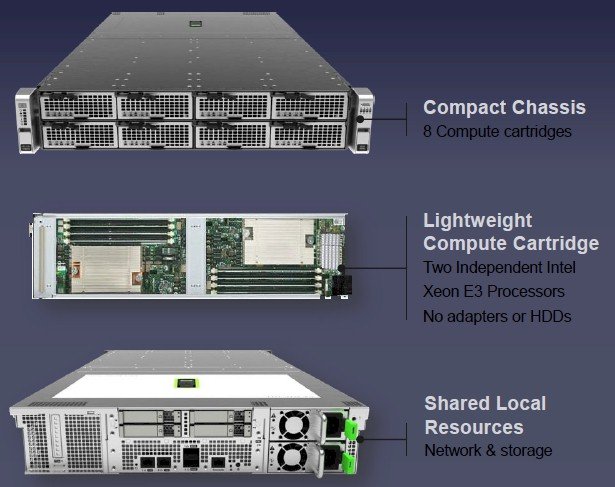Networking vendor Cisco has added new servers to its Unified Computing System (UCS) range, designed to for large-scale and small-scale customers.
The Cisco UCS M-Series Modular Servers are for cloud-scale applications, while the UCS Mini is for small-scale and enterprise-edge environments.
In common with other initiatives such as Intel's rack scale computing, HP's Moonshot and Facebook's Open Compute, Cisco's M-Series servers are an effort to allow a scalable data center, in which compute and storage power can be added flexibly, without the overhead caused by fixed-configuration rack and blade servers.
The servers consist of simplified cartridges, which share fans, power, network and storage in a chassis.
Although the M-Series takes Cisco's UCS servers up to a higher level, the company said it is not intending to sell these to Web giants such as Google and Amazon, who design their own servers and have them built by white-label suppliers.
Web scale technology must be able to grow without collapsing under the weight of its own complexity, according to Cisco UCS VP and general manager Paul Perez: “Rapid changes in the way applications are architected and delivered are being driven by the demands of big data, the Internet of Everything, mobility, video and cloud. We are in a new world where data sets and application scale are rapidly growing, and the opportunities for businesses to capitalize on the deeper intelligence and faster decisions they afford are really taking off.”
Cisco has also launched the UCS C3160 Rack Server, whose high-capacity local disk storage makes it best for distributed data analytics and object stores, unstructured data repositories, and media streaming and transcoding.
Cisco is also offering new UCS B200 M4 Blade Server, C220 M4 and C240 M4 Rack Servers, based on the future Intel Xeon processor E5-2600 v3 product family, as well as UCS Director Express for big data, which claims to automate Hadoop deployment.
Cisco makes modular unified computing servers for cloud
The Cisco UCS M-Series Modular Servers are for cloud-scale applications

